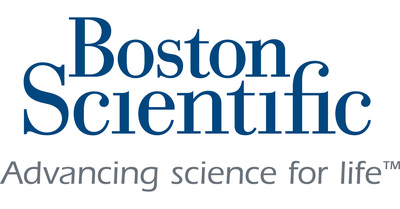Boston Scientific Receives FDA Approval For The Vercise Genus™ Deep Brain Stimulation System
Boston Scientific Corporation has received FDA approval for the fourth-generation Vercise Genus™ Deep Brain Stimulation (DBS) System, enhancing treatment options for over 10 million people globally with Parkinson's disease. This system includes Bluetooth-enabled, rechargeable, and non-rechargeable implantable pulse generators that work with Cartesia™ Directional Leads for optimal symptom relief. The company plans a controlled U.S. launch following its European debut in September 2020, potentially improving patient access and outcomes.
- FDA approval for fourth-generation Vercise Genus DBS System enhances treatment options.
- Bluetooth-enabled, rechargeable and non-rechargeable options improve patient preferences.
- Launch follows European introduction, indicating readiness for broader market deployment.
- None.
Insights
Analyzing...
MARLBOROUGH, Mass., Jan. 22, 2021 /PRNewswire/ -- Boston Scientific Corporation (NYSE: BSX) has received U.S. Food and Drug Administration (FDA) approval of its fourth-generation Vercise Genus™ Deep Brain Stimulation (DBS) System. The portfolio, approved for conditional use in a magnetic resonance imaging (MRI) environment,i consists of a family of Bluetooth-enabled, rechargeable and non-rechargeable, implantable pulse generators (IPGs) that power Cartesia™ Directional Leads, designed to provide optimal symptom relief.
More than 10 million people worldwide are living with Parkinson's disease (PD) – a progressive, neurodegenerative disorder, which causes stiffness, slowness and tremors due to a decrease of dopamine in the brain.ii DBS devices – and specifically the Vercise Genus System – can treat the symptoms of PD by delivering targeted electrical stimulation via surgically-implanted leads in the brain connected to an IPG. Devices can either be rechargeable or non-rechargeable based on patient and physician preference, and while many patients appreciate the long battery life available with a rechargeable system, approximately 80 percent of DBS devices used globally today are non-rechargeable.iii
"We have used the Vercise Gevia System with the Cartesia Directional Leads to provide our patients with a small device, a battery life of at least 15 years and optimal symptom control by delivering the right dose of stimulation precisely where it's needed," said Jill Ostrem, medical director and division chief, University of California, San Francisco Movement Disorders and Neuromodulation Center. "Now, the latest generation Genus portfolio – with an MR-compatible non-rechargeable IPG as well – provides greater access to patients who might not be candidates for a rechargeable system."
The fourth generation of the DBS system since 2012, Vercise Genus builds upon rapid and meaningful innovations in battery longevity, directionality, and stimulation capabilities. Through a strategic collaboration, the Brainlab platform provides enhanced visualization capabilities that enable clinicians to see lead placement within the context of each patient's segmented target anatomy.
"We continue to prioritize therapy innovations that improve our patients' quality of life with a wide range of personalized offerings," said Maulik Nanavaty, senior vice president and president, Neuromodulation, Boston Scientific. "For people living with movement disorders, this means developing new technologies that are designed to refine motor control, reduce programming times and expand MR compatibility to improve their treatment experience and ultimately their daily living."
The company commenced the European launch of the Vercise Genus System in September 2020 and expects to begin a controlled U.S. launch in the coming months. The Vercise Genus Deep Brain Stimulation System is indicated for use in the bilateral stimulation of the subthalamic nucleus (STN) as an adjunctive therapy in reducing some of the symptoms of moderate to advanced levodopa-responsive PD that are not adequately controlled with medication. The system is also indicated for use in the bilateral stimulation of the internal globus pallidus (GPi) as an adjunctive therapy in reducing some of the symptoms of advanced levodopa–responsive PD that are not adequately controlled with medication.
About Boston Scientific
Boston Scientific transforms lives through innovative medical solutions that improve the health of patients around the world. As a global medical technology leader for more than 40 years, we advance science for life by providing a broad range of high-performance solutions that address unmet patient needs and reduce the cost of healthcare. For more information, visit www.bostonscientific.com and connect on Twitter and Facebook.
Cautionary Statement Regarding Forward-Looking Statements
This press release contains forward-looking statements within the meaning of Section 27A of the Securities Act of 1933 and Section 21E of the Securities Exchange Act of 1934. Forward-looking statements may be identified by words like "anticipate," "expect," "project," "believe," "plan," "estimate," "intend" and similar words. These forward-looking statements are based on our beliefs, assumptions and estimates using information available to us at the time and are not intended to be guarantees of future events or performance. These forward-looking statements include, among other things, statements regarding our business plans and product performance and impact. If our underlying assumptions turn out to be incorrect, or if certain risks or uncertainties materialize, actual results could vary materially from the expectations and projections expressed or implied by our forward-looking statements. These factors, in some cases, have affected and in the future (together with other factors) could affect our ability to implement our business strategy and may cause actual results to differ materially from those contemplated by the statements expressed in this press release. As a result, readers are cautioned not to place undue reliance on any of our forward-looking statements.
Factors that may cause such differences include, among other things: future economic, competitive, reimbursement and regulatory conditions; new product introductions; demographic trends; intellectual property; litigation; financial market conditions; and future business decisions made by us and our competitors. All of these factors are difficult or impossible to predict accurately and many of them are beyond our control. For a further list and description of these and other important risks and uncertainties that may affect our future operations, see Part I, Item 1A – Risk Factors in our most recent Annual Report on Form 10-K filed with the Securities and Exchange Commission, which we may update in Part II, Item 1A – Risk Factors in Quarterly Reports on Form 10-Q we have filed or will file hereafter. We disclaim any intention or obligation to publicly update or revise any forward-looking statements to reflect any change in our expectations or in events, conditions or circumstances on which those expectations may be based, or that may affect the likelihood that actual results will differ from those contained in the forward-looking statements. This cautionary statement is applicable to all forward-looking statements contained in this document.
CONTACTS:
Rochelle Silsbee
Media Relations
(818) 812-7320 (office)
Rochelle.Silsbee@bsci.com
Susie Lisa, CFA
Investor Relations
(508) 683-5565 (office)
BSXInvestorRelations@bsci.com
i The Vercise Genus™ DBS System provides safe access to full-body 1.5T MRI scans when used with specific components and the patient is exposed to the MRI environment under specific conditions defined in the supplemental manual ImageReady™ MRI Guidelines for Boston Scientific DBS Systems.
ii https://www.parkinson.org/Understanding-Parkinsons/Statistics
iii Data on file at Boston Scientific. Represents total unit sales of Abbott (Infinity), Boston Scientific (Vercise) and Medtronic in 2019 and 2020.
![]() View original content to download multimedia:http://www.prnewswire.com/news-releases/boston-scientific-receives-fda-approval-for-the-vercise-genus-deep-brain-stimulation-system-301213017.html
View original content to download multimedia:http://www.prnewswire.com/news-releases/boston-scientific-receives-fda-approval-for-the-vercise-genus-deep-brain-stimulation-system-301213017.html
SOURCE Boston Scientific Corporation








